There seem to be two options we talk about in the prepping and survival community: bugging in and bugging out. When we talk about bugging out, it seems to always mean bugging out to the wild, specifically finding a place to hide in the woods. I’d like to offer a third option, that of bugging out to suburbia or to a small town. That may not seem like much of an option to those already living there, but to those living in the city center, bugging out to suburbia just might be the best possible option.
Let’s face it, few of us are really trained sufficiently to go out in the woods and survive. We might have dreams of doing just that, but we don’t know enough about building snares to trap food or foraging for edible plants. We think that we’ll live off of hunting big game; an idea that can be quickly dissuaded by talking to any hunter about the years that they didn’t bag anything.
Most of us are city dwellers and that’s all we really know. Oh, we may know a bit about surviving in the woods; but probably not enough. We would quickly find that our bug out bag isn’t enough and that finding enough food to keep us going is a full-time job, all by itself.
On the other hand, just getting out of the city center, with its high population concentration, would be a major plus for survival. When we compare the population density of cities to suburbs, we see a major difference:
- Average population density of the US: 94 people per square mile
- Average population density of metropolitan areas: 2,534 people per square mile
- Average population density of New York City: 29,303 people per square mile
- Average population density of suburban areas: 1,800 to 2,000 people per square mile
- Average population density of rural towns: less than 1,000 people per square mile
While the myth that rural towns have a lot of food and other resources is just that… a myth, the ratio of resources to people will be much better than it is in the center of a major city. About the only time that those towns might have an abundance of food is just after harvest time, while the food is still in the grain silos and hasn’t been shipped off yet.
Pretty much the same thing can be said for any suburban area we might bug out to; at least in the sense of not having an abundance of food. We must keep in mind that the people who live in either the suburbs or a rural town are likely to feel that the resources they have are theirs and not be willing to share. But some resources, like water, are not personally owned. Food can likely be bartered for, at least to some extent.
But the idea isn’t so much that of using the resources they have, especially the food, as it is of having someplace to bug out to, which is less dangerous. Criminal gang activity is more likely to occur in crowded urban areas, than it is in the suburbs. In times of severe long-term crisis, those urban areas may turn into war zones, as people fight for resources.
My recommendation, if you decide to bug out to the suburbs or a rural town, is that you start establishing a supply cache there now. You can rent a small storage space just about anywhere; and the lower the population in the area you’re trying to rent it, the lower the cost. $50 a month, for someplace secure to build your cache, is a worthwhile investment.
That leaves our biggest question, when we bug out, as being where we will stay in these suburbs or small towns. We’re going to need shelter and making a debris hut isn’t going to work out all that well. There probably won’t be a forest floor available, for us to gather the debris from.
Staying with Friends or Family
One option none of us should overlook, is the possibility of staying with friends or family, should we be forced to bug out from our home. That’s been a common solution for centuries and while many families are no longer accustomed to offering that level of hospitality, emergencies tend to bring out the best in people. Your cousin that you haven’t seen in years would probably rather have you in their home, than see you on the street.
Of course, this works much better if you retain a good relationship with the people you would be moving in with. It is always harder to say no to someone you just spent the holidays with, than it is to someone you haven’t seen in five years. Maintaining that relationship can also offer you the opportunity to do a little planning and preparation for such an eventuality, even stockpiling supplies in their home. Just be sure you can trust them, before building that stockpile.
Motels
One of the easiest answers is to find a motel somewhere that you can stay at. This is what typically happens during pretty much any natural disaster, where a general evacuation is called for by city or state officials. More than anywhere else in the country, the residents of Florida are accustomed to packing up the car and heading north, to find refuge from hurricanes in the motels of Georgia and Alabama.
The one problem with this idea is that motel owners are likely to take advantage of any emergency, jacking up their prices. While some states have laws against that, enforcing those laws is difficult. You’re more likely to be able to get a good price for a motel room by building a relationship with the owners, becoming their friends. That means staying at their motel regularly, so that you have a chance to meet and talk to them.
Campground
Public and private campgrounds are the forgotten bug out destination. The funny thing about that, is that as preppers, we all buy camping gear to use when bugging out. Granted, that might be rather minimalistic camping gear; but it’s still camping gear. Staying in a campground is considerably easier than setting up camp in the middle of the woods and it’s unlikely that most people will consider this as their bug out solution.
Of course, having a travel trailer or motorhome makes this a much easier option, as you will essentially have all the comforts of home. Therefore, investing in a used travel trailer might just be a good addition to your survival plans. At the same time, it becomes a much less costly way of taking vacations, giving you more money for prepping.
Camping in Open Areas
I actually lived in a motorhome, traveling full-time, for several years. One of the things that I learned quickly, is that you can camp out anywhere. You don’t have to have a formal campground to camp in. Granted, there are a lot of homeless people doing that today, in our cities, so it would probably be a good idea to make sure you don’t look like them.
One thing that’s necessary, to avoid looking like you’re homeless (even if the disaster has left you homeless) is to avoid camping on streets, sidewalks and other “public” spaces. Find an empty field somewhere that you can use, where you aren’t in people’s way and aren’t making the streets look junky. That will add to the residents there being more likely to accept you.
Of course, if you have the aforementioned camper and park it in an empty lot or field somewhere, you’re not going to look like you’re homeless. I’ve camped in many Wal-Mart and church parking lots. People see you in a different light when you’re in a camper, even an old one (mine was almost ancient).
Abandoned Buildings
Leaving campers and campgrounds aside, one of the simplest shelters you can come up with, just about anywhere, is an abandoned building. Our country is filled with abandoned buildings, ranging from old homes to warehouses, with a lot of small abandoned shops being available in those rural towns. The big box stores have ruined a lot of small businesses, who have left their buildings behind.
There are a number of factors to take into consideration, when looking for an abandoned building to use. First and foremost is the condition of the building itself. You don’t want to use someplace with a leaking roof or that looks like it’s going to fall down on top of you. At the same time, you don’t want to try and use a building where people are likely to notice you and send the police to run you off. Ideally, you want a building that’s in good physical shape, but is a bit isolated, so that people don’t notice you.
As with other options, this is going to take a bit of scouting and preparation. I wouldn’t recommend stockpiling supplies in an abandoned building, as you’re likely to lose them all. However, I would spend some time exploring old buildings in the area you are intending to bug out to, looking for good candidates. Make sure you have some alternate buildings in mind, in case someone beats you to the building you’re planning on using.


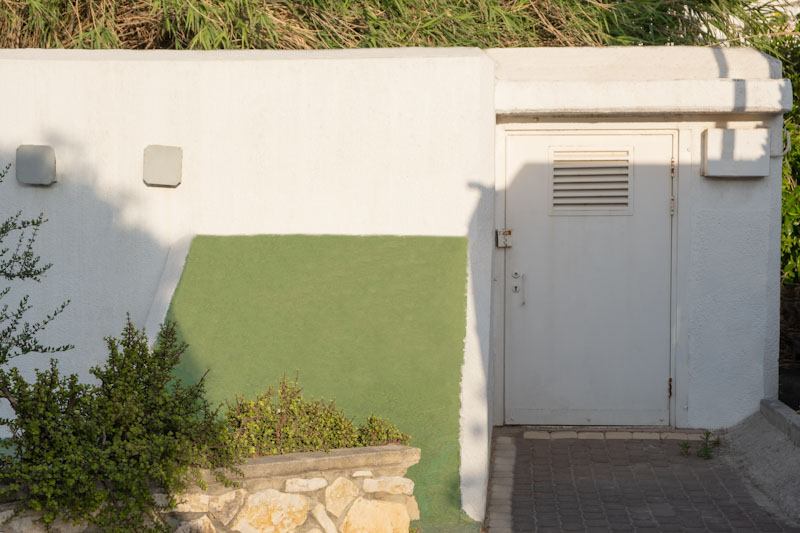



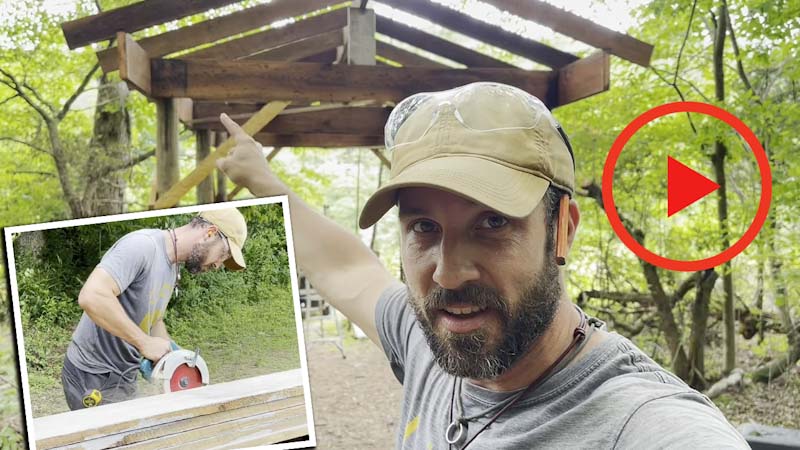
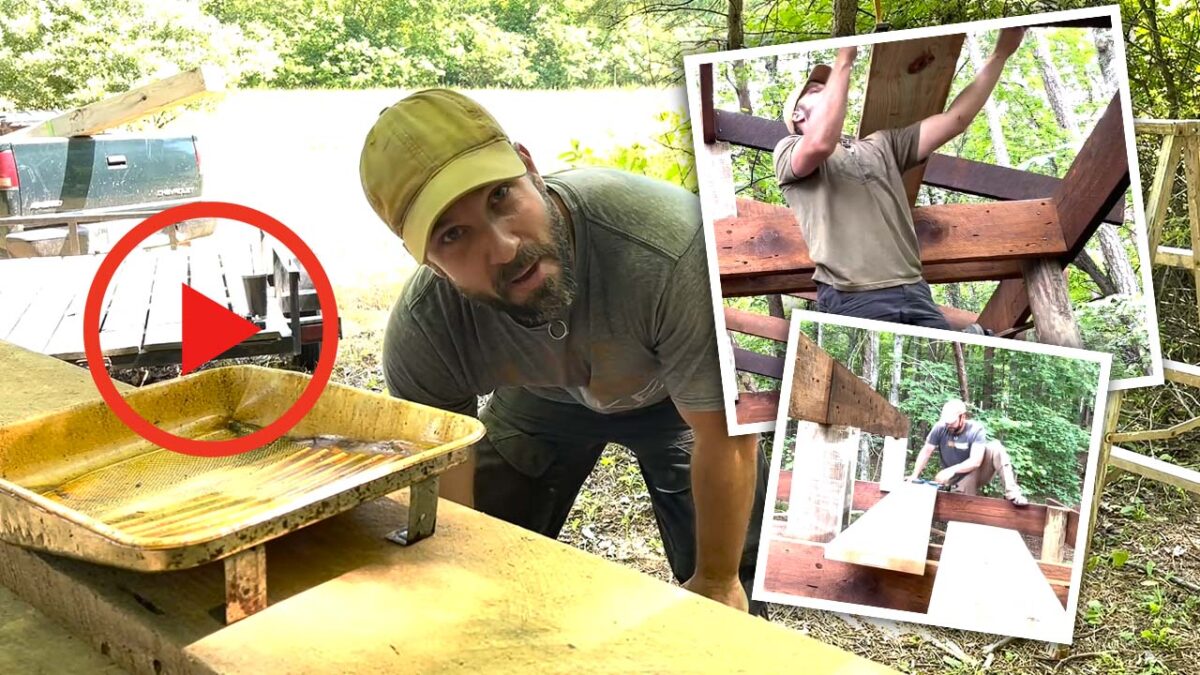
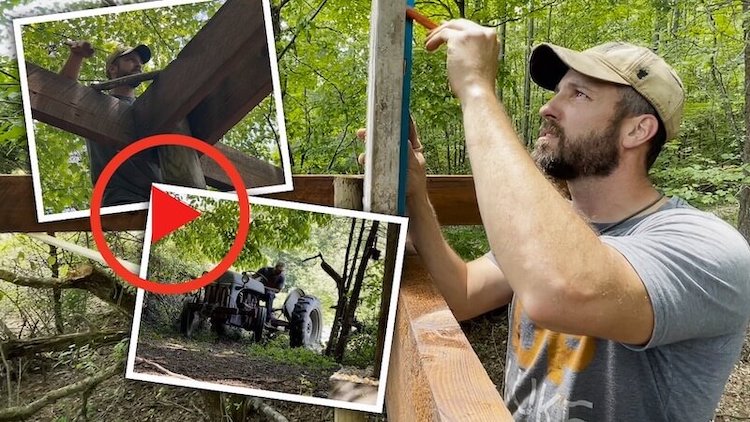
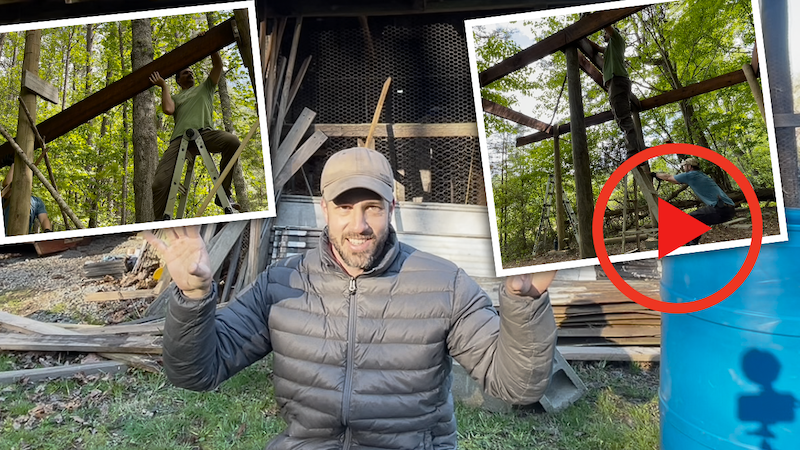

Travelin On | October 31, 2023
|
As long as whatever dwelling one chooses to “hole up in” is done legally so one doesn’t become a criminal, is by far the best option. If you are afraid of being reported and driven off by the police/building owner/caretaker/land owner, etc, you don’t belong there anyway, you are a trespasser and a criminal. Be careful in your choices and don’t become the student of the criminal minded set that makes you an outlaw. Otherwise, some very good suggestions in this article. There are maps easy to get of public lands where people can park rigs, from cars, to pickups/campers, trailers, camper vans, motorhomes, tents, etc. that are legal and a much better option for finding a place to stay if you have no other place.
The family/friends suggestions and staying with them is nice, IF the family relations/friends are fiscally responsible people and would be glad to have you come equally share with them, their resources and yours combined. If they aren’t fiscally and morally responsible people, they will be glad to have you move in with your stash, swipe it from you and either make you feel unwelcome or simply chase you out without any of your stash. Make sure your “family” and “friends” are actually trustworthy. Observe them very critically with good just observation skills, it is required for your own safety. One can do a lot better alone than staying with irresponsible people.
Are you in debt? If so, I wouldn’t be trusting your company in the time of an emergency. In this world how many people aren’t in debt? Very sadly 77% of people are in debt per the Federal Reserve. That figure takes in all types of debts, from homes to vehicles, to credit cards, to student loans, and every other type of debt. We have and have had a government, banking and credit system that have taught irresponsibility, living outside of and beyond your means, but rather the idea that you deserve it now and shouldn’t have to wait. It is an easy to believe idea that is to people’s detriment. Teaching people to save until they can afford to purchase something paying 100% down so they owe no one anything for what they possess is the responsible teaching. The irresponsible teaching that “you deserve it now, you shouldn’t have to wait,” is one of the most dangerous and false concepts, teaching selfishness and irresponsibility are acceptable, and the underside of it all is that if you’re in debt you are a slave to the lender, and they actually own what you mistakenly think is yours. Better than 3 out of 4 people believe that lie. People with the idea of “I’m going to have my new house, car, boat, etc., plus eat, sleep and buy what I want and figure out how to pay for it later” are some of the most irresponsible people I know and they owe their lives to the credit companies/mortgage companies and banks, they are slaves who own nothing, the lien holders are the owners and hold the deeds, titles, etc. to what you want but don’t own. Not the type of person I’d ever choose to team up with in an emergency. From the stand point of debt and what it really means in people who have believed the debt lie, there aren’t that many people who can be trusted are there? Be careful, be careful, be careful, be careful, be careful, very careful. Keep your mouth shut about what you have, even just a little. Don’t let your dwelling look like you have a lot, the more skimpy and bare looking it is the safer you are for anyone who comes calling at your door. For what you do have available, be willing that it is something you don’t care if you give to someone. I keep a small stock of canned vegetables in stock, even items I wouldn’t use. There are far more nutritious vegetable forms to eat than canned goods and if someone really wants something, they’re welcome to the small stash of canned goods I have.
I’m not opposed to helping others out, but there is a huge difference between the irresponsible moochers, those who have thoughtlessly or deliberately choose the incompetent means of debt, who will expect you to get them out of their mess, but they are unwilling to grow up and learn to do things responsibly, and those who are responsible and in need. My offer of help often comes in the willingness to proverbially teach people how to fish rather than giving them a fish. If they are willing to learn how to fish, they’re worth helping, otherwise I’d be dumping resources down someone else’s rat hole.
I’m guessing most of the people who are “professionalL writers of these survival/preparedness articles have their own sets of secrets they aren’t telling anyone, they don’t want a whole lot of other people following what they would do, it would compromise their security. I find the most of the suggestions in such articles interesting for those who haven’t learned to think for themselves, those who haven’t learned to observe and really see the possibilities in their situation and in making decisions and staying well within the law. Most people use the idea that if it seems good at the moment it must be right, they never look at the long term consequences of an action and never think beyond immediate want to long term anything. People who think and behave in that manner are a danger. I’ve had a lot of people tell me, “You think too much.” In my opinion the vast majority of humanity doesn’t think nearly enough. I’m right along with what I would consider the most of the people who write these articles, I have my own stash of secrets of what I will and would be doing if things went wrong, and I’m not about to share them with anyone either. I don’t want my security compromised either. The biggest and most consistent plan in every plan I have is, “THINK, USE YOUR BRAIN, STAY LEGAL, ASSESS THE SITUATION AT HAND AND ACT FOR THE LONG TERM.” Some short term needs will be required in that guidance, but the long term has to be maintained for safety and security.
Dav1d | October 31, 2023
|
There is often mention of going elsewhere when talking about bugging out. My concern is HOW are we going to get there? In many cases the roads are just jammed because SO many people have the same idea but WHAT IF we’re looking to Bug Out due to an EMP attack? You may have a camper and an appropriate vehicle to tow it with but WILL YOUR TOW VEHICLE start? If what we read is true… the roads will have turned into parking lots. Cars and trucks from the 60’s and maybe the 70’s were not totally dependent on computers and solid state things that FRY due to EMP. Even if you have one of those, you still have the problem of streets/highways full of stalled vehicles. So planning ahead for the “How are you going to get where you want to go?” is important. For short distances, a bicycle is an option. A battery powered one is even better. IF you have a solar panel, and an inverter you could probably charge up that bicycle battery, if you’re in a sunny area. Even a MoPed might be a good option, assuming you have fuel for it.
No plan is totally foolproof. Having options as backups is always a good idea. Remember, those options need to be tested from time to time to make sure they’ll perform when the SHTF.
Lonnie C Larson | October 31, 2023
|
In the suburban or small-town situation. perhaps finding an old business that had to shut down and offering to buy the property and then covertly fix it up for habitation. Frequent the local shops and stores. Offer to help if the community has any small-town events. Making yourself available to help out when needed goes a long way in winning the hearts and minds of the locals. When the times comes during a SHTF scenario, you will be welcomed as a friend.
CW | October 31, 2023
|
If you leave days before the emergency, you have a chance of getting somewhere. We live in S Florida. We stay home for all scenarios, including Cat 5 storms.
One year we were coming home from a trip in Canada when a storm was coming. I-75 was backed up, full stop for 2oo miles N bound. Accidents, vehicles out of fuel, and no way to get off. We breezed by with our self-contained 4 season camper as there was no traffic south bound.
Thousands of people were stuck. There was no gas at stations and no place to stay.
Can you imagine what that would be like nation wide? Impossible.
I read all the time about people wanting to bug out. So foolish for most.
If you fear that much where you live, time to move. We have the skill set to camp from -30 to +110. Few want to do that for fun. We used to spend 3-6 months each year off the grid either sailing in the Bahamas or camping in Canada’s wilds. It’s not easy when things are normal. It is a long learning curve.
People need to be reasonable. The time to “bug out” is when the reason is on the horizon and others don’t know it yet. Whatever it will be, it will not be how people imagine.
Walter | November 1, 2023
|
Beware of strays and junkies! They are all over the place!
Tom MacGyver | November 2, 2023
|
The trouble with “bugging out;” when you “bug in,” you must defend yourself and your resources against the interloper. When you bug out, you ARE the interloper. That “empty house” is most likely sitting on someone’s land. You’re TRESPASSING. In many areas, trespassers are SHOT. In a SHTF scenario, “many areas” becomes “MOST areas.” The same goes for staying in an abandoned business building. Not only are YOU trespassing, but OTHERS are likely trespassing as well, and for the same reason you are. Now you’re potentially contending with the actual owner of the property AND the other trespassers.
In most cases “bugging in” is the safest and strongest option. You’ve got shelter. It’s YOUR shelter. You know its strengths and weaknesses. You’ve got supplies. They’re YOUR supplies. You’ve got ALL of your “protective measures.” You have some idea of the nature of the people around you. You KNOW YOUR AREA. Better to plan on bugging in and defending your place than to take your chances on the road!
If you MUST bug out, you MUST have a predetermined place to go, and a plan for how you’ll survive when you get there. Otherwise you may very well be heading into the jaws of the very situation you’re trying to escape!
Camus | November 7, 2023
|
I agree. Unless you are lucky, on the coast, have a sail boat loaded with supplies and are able to “vanish”at the earliest possible indication, stay home. Fish, solar water generators, protected coves, and mobility will keep you alive .
Otherwise, be prepared to kill and take what you need. No, it’s not pretty… it’s survival of the fittest.
It may be necessary to abandon your values, or die.
persona non grata | November 7, 2023
|
Attempting to bug out and refusing to leave one’s vehicle is often a death trap. We saw it in the fires in Maui, the west and Australia, in ice and snow storms with people stranded 20 hrs, in freshwater flooding with people’s vehicles washing away with them in it, and I could see it being a death trap in the case of tsunami or lahar. Get realistic about getting anywhere by vehicle. There are many parts of this country you can’t reliably go 15 miles in an hour on an average Tuesday afternoon due to traffic jams for any or no reason, or weather.
Jim | November 7, 2023
|
In your decision factors, think security. The zombies, ,the ones who didn’t prepare, will come for what you have. Security/guard duty for 24 hrs/7 days, on four different directional fronts, is impossible for one to two people to do. Think survival and prepper groups NOW.
redusci | March 19, 2024
|
In a rural (or semi-rural) area, one might consider forming or joining a group with like-minded “interests” which would be useful in survival situations.
The low-profile example that comes to mind would be folks who participate in a community gardening (e.g., veggies, etc.) project overseen by a local farmer or community group. In a nearby area, there had been such a community farm available.
Other individuals might offer advice about radiation fallout, while medical professionals could contribute courses regarding sanitation and disease control.
These scenarios – to say the least – require the diligence, attention and cooperation of some very dedicated individuals. The question is… are there many who have the discipline of those “civil-defense” groups from the 1950s? The main obstacles to civil society now include lower educational standards, fewer stable family-oriented households, No-cash Bail and addiction, which seem to pale in view of the 1.7 million illegal (and probably criminal) “got-a-ways” who entered the USA in the last 3 years.
I think Americans must formulate an updated definition and model of “Civil Defense” with the cooperation of their local sheriffs and trustworthy (only) local officials – who hold fast to the Constitution and the Bill of Rights. A daunting task, and are we able to achieve it?
James Gregg | April 22, 2024
|
While I loved the idea about have a storage facility available to store supplies, you left out one thing. The storage facility could become your bug out location in a SHTF scenario. Put water and food in storage shed and bring in padding for the floors. Have everything you may need to live there indefinitely..
CAddison | April 22, 2024
|
There are now 200 storage facililties in the town nearest to us. They are ALL money laundering for drug traders.
To use a storage facility for bugging out may sound ok for where you are, but you will be nothing more than an easy target in a shooting gallery in any town.
Nobody could put in the amount of ammo needed to defend such a thing.
If you can’t “bug in” there is no place to bug out. in a routine evacuation here in hurricane alley, I-75 is backed up, full stop, no fuel or services availalbe, accidents everywhere from from the east coast to near the Fl/Ga border. And, that starts days before the storm hits
So, unless you know a week or so in advance, you’d get to be one of those stuck…and wherever you think you are going you will find people already enjoying your spot. That’s how it is.
If you are that paranoid, then move somewhere you can stay. We did